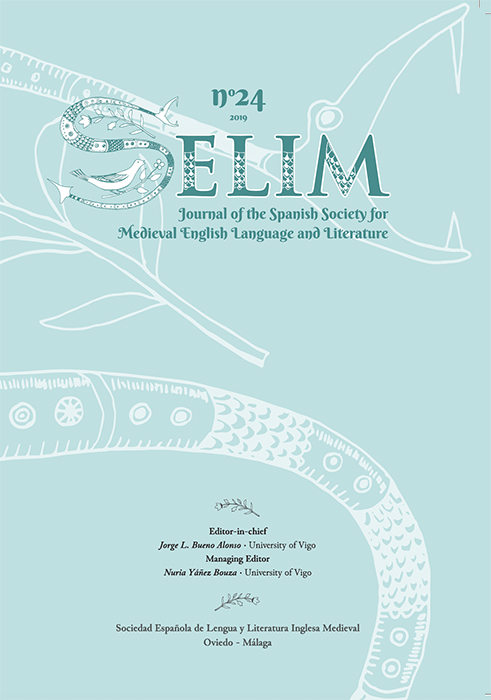Abstract
This essay deals with two intertwined eschatological motifs of the literary and iconographic culture of early medieval England: the devouring devil, especially in the guise of a dragon, and the mouth of hell, fashioned as the jowls of a zoomorphic monster, arguably a distinctively English adaptation of the anthropomorphic mouth of hell of classical descent. The following analysis will outline the intricate, creative interplay of crucial themes of Christian eschatology and demonology, on which the
imagery of the demonic devouring dragon and the mouth of hell can be said to ultimately rely. In particular, it will be argued that the coalescence of these two widespread motifs into the distinctively Anglo-Saxon imagery of the zoomorphic mouth of hell may have been triggered by the cosmology and eschatology of two apocrypha especially popular in early medieval England, the Seven Heavens apocryphon and the Gospel of Nicodemus, especially its section on the Descensus ad Inferos. The discussion of relevant textual, manuscript, and iconographic evidence will
afford intriguing insights into the shaping of this syncretic blending, as well as hinting at the milieu where such a blending may have been if not initiated, then at least endorsed and popularised.
Keywords: Anglo-Saxon eschatology; apocrypha; mouth of hell; source studies; manuscript studies




